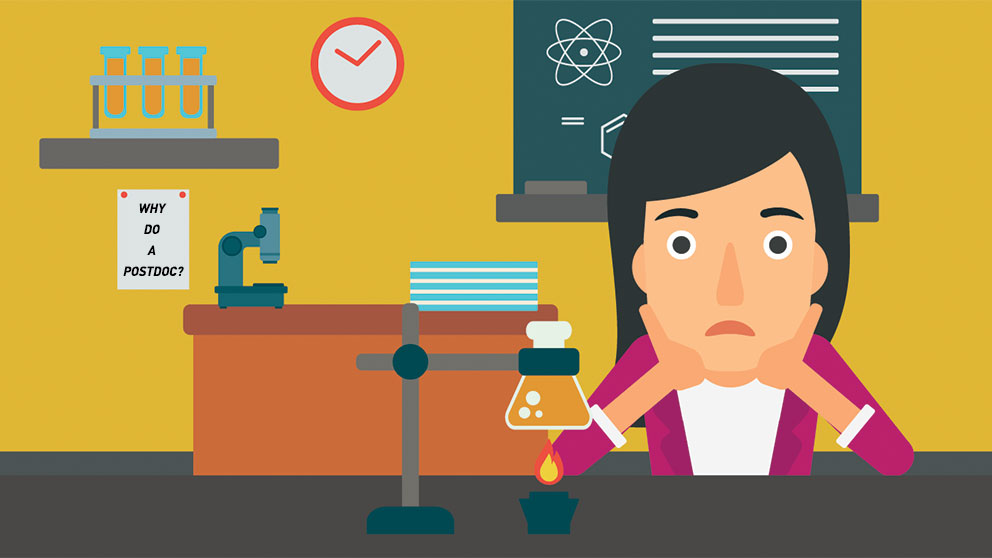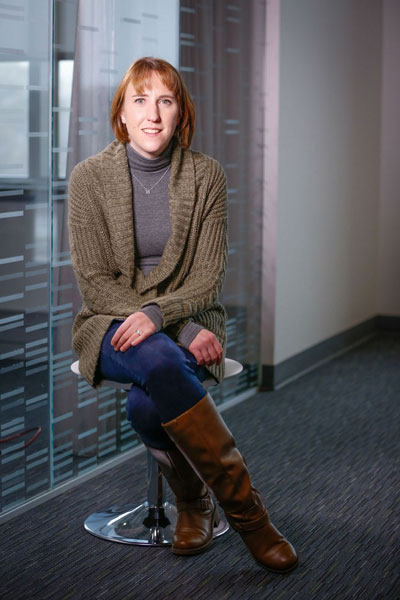
I’m a postdoctoral fellow at The Jackson Laboratory for Genomic Medicine in Farmington, Conn. Although it’s difficult to admit, I’ve been here nearly two years and I still have no idea what I want to do next in my career.
What is the point of a postdoc?
Originally, I wanted to be a principal investigator with my own lab and funding. So I followed the prescribed path: I went to graduate school, earned my Ph.D., and found a great postdoctoral fellowship to expand my skill set and learn about new fields of science.
All the boxes have been checked.
Except that, I’m not sure I want to do this anymore. I go back and forth almost daily about what type of job I should pursue after my postdoc.
Should I do a second postdoc and see what happens in a new lab?
Maybe I should reapply for an NIH F32 postdoc fellowship and stick it out a little longer at my current postdoc.
I love writing and editing — perhaps that should be my focus when I’m searching for jobs?
But if I leave academia, am I giving up on everything for which I have worked so hard and sacrificed so much?

I know I’m not alone in this feeling, and I want to write more about this topic in the future. I’ve been reading Melanie Sinche’s book, Next Gen PhD, and it seems like most of my peers are in this position, whether they want to be a principal investigator or not.
Less than 15% of life-science Ph.D. graduates have a tenure-track faculty position within 6 years of getting their PhD. So if I want to do something else with my Ph.D., I need to start thinking about it now.
There are countless options available to Ph.D.s outside of the laboratory: consulting, communications, patent law, biomedical industry, startups, science policy… the list is never-ending — exciting and terrifying at the same time.
And in considering all these possibilities, I have come to the difficult question that paralyzes even the most successful postdocs: How do I figure out what I want to do with this Ph.D.?
During graduate school we were required to create an Individual Development Plan using the myIDP website, which is an online program for Ph.D. students and postdocs in the life sciences. The myIDP tool asks you a series of questions to help align your interests and passions with potential career categories. Although it is a useful tool, in my graduate program it was just another required online survey, something we had to complete for our thesis committee, and then it was promptly left aside. We had to work; there wasn’t time to think about the future!
I’ve since returned to myIDP, and though it was useful providing some career options, I didn’t feel particularly inspired or motivated to start looking beyond another postdoc for my next job.
In Next Gen PhD, Sinche outlines four general phases of career development that will help you find a job that is both satisfying and fits your career objectives. These steps are:
- Self reflection
- Career exploration
- Goal setting
- Job search
I’ve been so focused on the career exploration part, that I bypassed an entire step of the process!
In the next few months I’ll be writing about each step of career development, starting with self reflection. I harbor no illusions that my journey will be an accurate representation of every postdoc. But I do hope that in sharing my story, I can contribute to a larger conversation about how scientists prepare for life after the Ph.D.
Ellen Elliott, Ph.D., is a postdoctoral fellow at The Jackson Laboratory for Genomic Medicine in Farmington, Conn. Ellen works in the laboratory of Adam Williams, Ph.D., where she is studying the function of long non-coding RNAs in TH2 cells and asthma. Follow Ellen on Twitter at @EllenNichole.